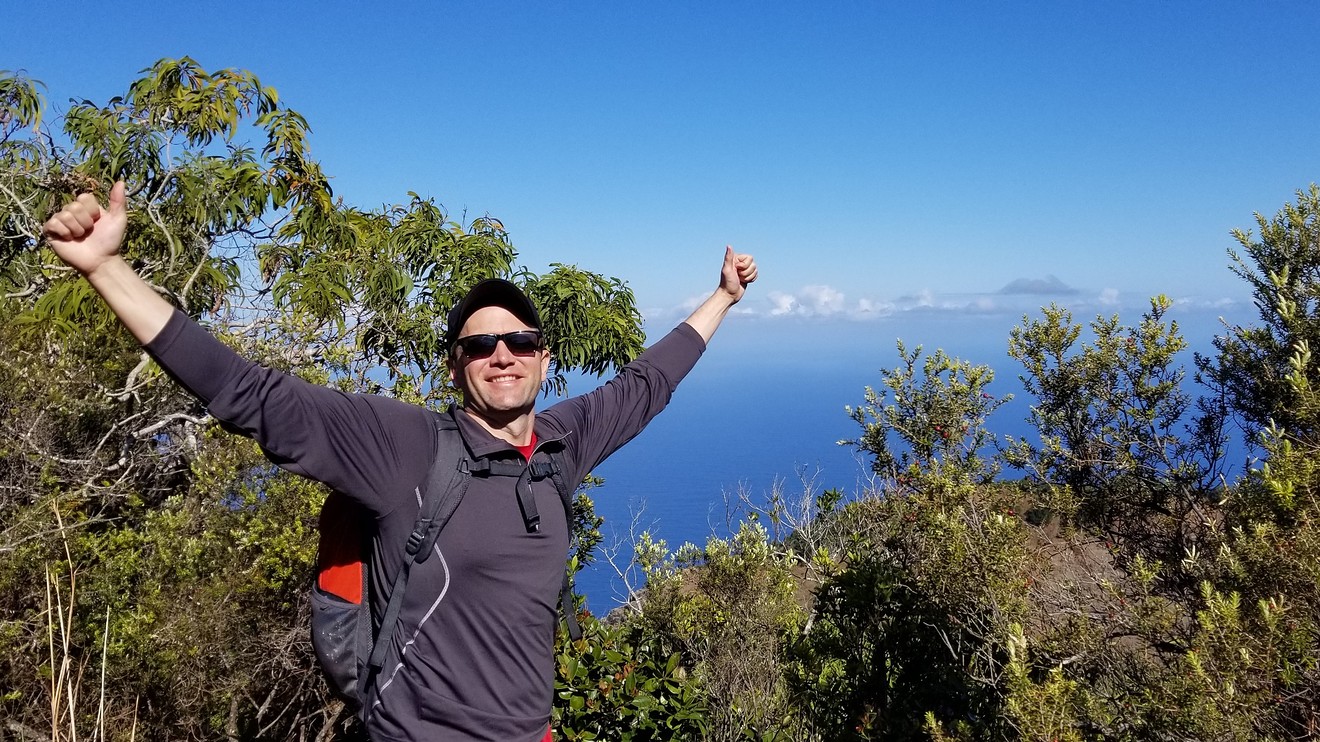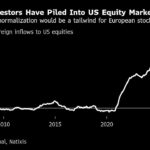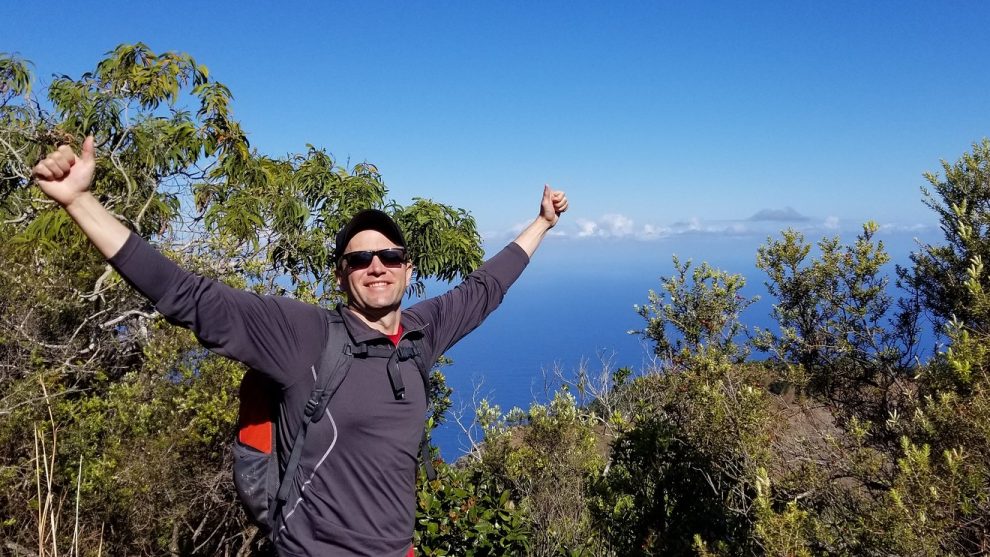
Billy B., an entrepreneur and salesman, realized he wanted transform his life, save more and become someone who could help others — but first, he had to get out of prison.
The 38-year-old from Minnesota, who also blogs at Wealth Well Done, said he came from a loving family but started using drugs when he was 14. At 21, he was charged with reckless homicide by delivery of a controlled substance when a friend of his overdosed and died after using drugs with him at his apartment. He spent the next 10 years in federal prison.
The next steps were small ones, he said. He moved back into his parents’ house with the goal of moving out soon, finished school, got a job and kept networking. Eventually he started investing, including in real estate, and saving thousands of dollars. He started his own business selling promotional products to other businesses. So far, Billy has amassed $300,000, and he’s working toward half a million dollars, then up to a million and more. These were never his goals before he went to prison, but while there he recognized his potential and was eager to make it a reality. “I had a choice to fight back and write a different story for my life,” he said. “So that’s what I did.”
Billy spoke with MarketWatch about his savings and retirement goals, how he did it and how prison affected those plans.
MarketWatch: Do any moments stand out in your memory as turning points for you?
Billy B.: The first one was a massive turning point, it was the first month of being incarcerated: It didn’t matter where I came from, what neighborhood, what race. All of that was gone. I was a prisoner, I was the lowest level of society and I realized nothing would happen unless I chose to will it into existence. That was the first big revelation.
The second one was maybe a year or two in. I had faith that if I made my inside life better — my heart, my mind — and I tried to get that healthier and fix the things that caused me to get to prison, that would make my outside reality better when I got out of prison. So for the rest of the nine years I just tried to be a better human being and tried to do the right thing. It actually worked, I didn’t know it would, but six years later it did.
I learned that prison was like a ‘choose your own adventure’ story. If you wanted prison to be a mean, hard, horrible place, you could choose that. But if you wanted prison to be like a higher-education class where you lived in the library, you could choose that story, too. The second story was the one I chose to create. When I got out of prison, I realized life is also just like a ‘choose your own adventure’ story. If you want life to be a sad, unfair and cruel story, you can choose that. But if you want it to be an adventure full of hope, inspiration and success by learning, listening, working hard and taking small risks, you can create that story too. We all get to choose what story we want to write for the rest of our lives.
‘When I was in prison, it was almost like a forced retirement with no luxury, no comfort. I could just sit there and do nothing and that was so miserable to me.’
MW: At what point did you think of wealth, or retirement even?
Billy: When you’re in prison, you can’t. I made 40 cents an hour, I had never lived on my own. I grew up in my parents’ house and then I was in college dorms for a year. I had never been on my own so I had never made adult decisions. My parents were still helping me and I hadn’t graduated yet, I hadn’t had a real job yet. Even in prison, my best friend was telling me to start a business and I was thinking: ‘I’ve never had a $10 per hour job, that is so far beyond me.’
When I was in prison, I found a way to be happy, self-motivated and working on my own. I realized I didn’t make any money and I didn’t have anything, and I thought if I could get out and not need a lot I could chase my dreams. My vision was independence. I save money so that I am free to wake up every morning and say ‘Who do I want to be today?’
MW: How did you get motivation in prison?
Billy: I remember this thought: I didn’t want to come out and look beaten physically, emotionally, mentally and spiritually. That was a major fear of mine. Fear motivates you to do things you didn’t think you could do. There was also a saying in prison, and it’s also good in life: Do the time and don’t let the time do you. You can change. Now that I’m out and successful, I see it’s the same in life. Do your career, and don’t let your career do you. Take advantage of every moment even though you’re in prison, live your life, do your time and don’t sit there and let life and depression and anxiety cripple you.
MW: What would you say is your calling, and why do you think that is?
Billy: I don’t know yet, the same way I didn’t know how I was going to survive 10 years in prison. One way to find your calling is to take it one day at a time, keep waking up and doing the best you possibly can during that day. Do what you want to do, build what you want to build.
My dream is to help people and give them confidence to say ‘I can do something with my life that is special.’ I don’t know if it’s through writing or business, but right now I’m in the process of waking up and making an impact. I write about the things I learned that helped me go from no experience out of prison to being worth $300,000 six years later. My ultimate goal is to be free of money so I never have to think of it.
My dream is to help people who had a setback in life. [And teach them that] it is possible to turn your life around. It might take you six months or six years or 16 years. It took me 10 years to get to the starting line. But I made it to the starting line and I kept going. If I could get others to the starting line so they believe they can live a happy life, that’s all I want to do.
MW: Was money or retirement something people talked about in prison?
Billy: Never. I don’t remember one financial conversation ever. When I went in I was young, I didn’t know these things. At the end of one of my college math classes the professor said you all passed Algebra 101 but before you leave today I’m going to tell you about compound interest because it will be the most valuable lesson you’ll ever have. So in the beginning I knew what that was, but we never talked about it in prison. We talked about how to be better human beings, how to stop being drug addicts, alcoholics or addicted to making money in illegal ways. It was only when I got out that I got into money and started saving and learned about investing and realized I was good at it.
The problem with rehabilitation prisons, they made the classes very basic. I knew how to write a check and have a credit card, but they never went on to how to invest or save money and I don’t remember having one about budgets.
MW: What does wealth mean to you now?
Billy: Both my wife and I see wealth as the ability to say “I love my life.” And the reason I say that is that there were bad days in prison, so I don’t want to make this seem like prison was an awesome place, but even on those days when I woke up in a prison cell and was close to getting out or had an idea of what I would do or imagining who I would become and planning for it, the dream was never to be rich. When I got out I wanted to say ‘I love my life’ and for me that means no financial stress. There are people who have $300 million but for me the barometer is, can you wake up and say ‘I love being me’? I learned how to love being me. For me, loving life is having the cash flow and assets so I can work because it’s fun, so I can create because it’s fun and never having to worry about how much money it will make me.
MW: Do you have any advice for people who may be getting out of prison, or for those who have loved ones in that situation?
Billy: What worked for me was setting the smallest goals first, because you can never get to the biggest goals until you can get through the smallest ones. My first goal was to get a $10 an hour job, finish school and move out of my parents’ house (a lot of inmates go to live with their families or a halfway house). I didn’t want to overwhelm myself. I saw guys fail because they would set out to get a $50 an hour job first and it didn’t happen and they’d get discouraged and give up. I set the most basic goals and it took six months to a year, then once I accomplished that I set the next set of goals. Then I had work history, so I went on to how to make a better resume, and then how to get interviews for a $15 to $20 an hour job, and then once I had that I went on to how to save a portion of that so I can start my own business. It may take five years to do that but you can’t go to Goal 2 unless you do a good job of Goal 1.
MW: How do you define retirement, and what are your plans for it?
Billy: My next goal is to hit $500,000 and at that point I will focus more on meaning and purpose, because I already have income covered by passive income and rental properties, but I won’t be actually retired. I’ll just be less focused on money. Once I’m worth between $1 million to $2 million — I’m 38 now, so I have a lot of life left — once I’m in the millions then I can stop, and if I want to take a three-month trip I can.
When I was in prison, it was almost like a forced retirement with no luxury, no comfort. I could just sit there and do nothing and that was so miserable to me. You have to do your time and you have to have something to do. That’s why I don’t know if I could ever truly retire. I like to create. I like to buy property and flip it. It’s a challenge to me, and I don’t think the desire to take on a challenge will ever go away.






